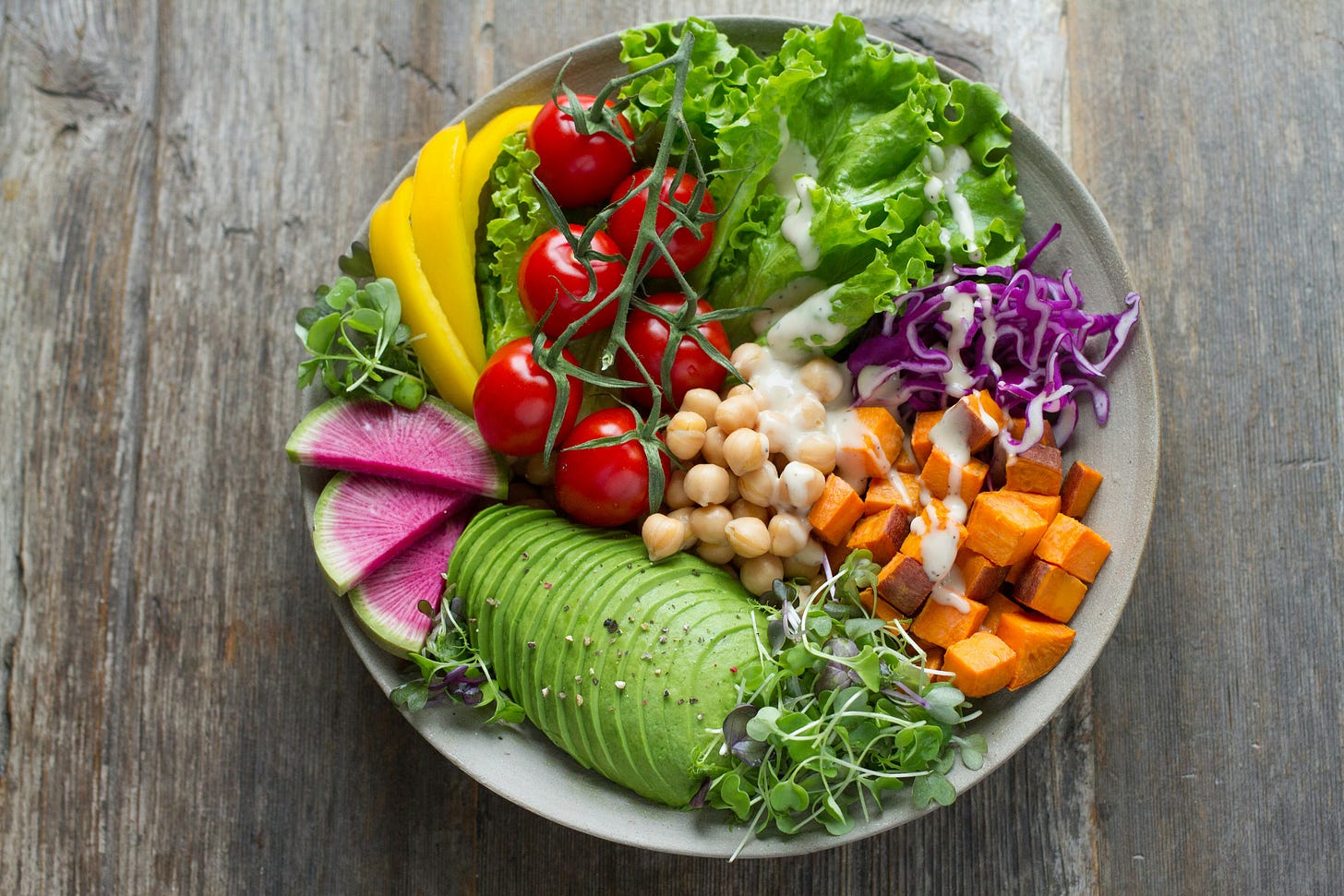There is a story from ancient India which you might have read in comic books. A group of blind men encountered an elephant for the first time. Each touched a different part of the animal, leading to vastly different conclusions about its nature.
One felt the trunk and declared it a snake, another touched the leg and insisted it was a tree, while a third felt the tusk and claimed it was a spear. Their limited perspectives led to heated arguments, each believing their experience represented the whole truth.
This parable mirrors the current state of nutrition advice. We often cling to our own experiences or beliefs about diet, forgetting that nutrition, like the elephant, is complex and multifaceted.

If you are an active participant in the social media sphere, you may have noticed an increasing number of heated debates unfolding around the topics of diet and food. It seems that everyone has an opinion to share, regardless of the platform.
From Facebook groups to X, threads and Instagram comment sections, it’s evident that diet and food have become polarising topics. These virtual discussions often spiral into ugly arguments, showcasing the passion the individuals harbour for their dietary beliefs and practices.
Whether it’s discussions about the merits of veganism, the efficacy of low-carb diets, the health benefits of organic food, or the controversial aspects of fast food, it’s clear that these conversations are driven by strong views and often conflicting opinions. There is a reason why nutrition and diet is the subject with the highest number of books by various authors on Amazon.
The world of nutrition brims with conflicting advice. Keto enthusiasts swear by high-fat, low-carb diets. Vegans champion plant-based eating. Paleo adherents advocate for a return to ancestral foods. Each group presents compelling arguments and success stories, leading many to believe they've found the one true path to health.
But here's the truth: no single diet works for everyone. Our bodies are unique, shaped by genetics, lifestyle, environment, and personal health history. What works for one person might not work for another. The diet that helped your coworker lose weight could leave you feeling sluggish and unsatisfied.
Nutrition science evolves. New research challenges old beliefs, and what we consider "healthy" changes over time. Remember when eggs were vilified for their cholesterol content? Now they're recognised as a nutrient-dense food. The key is to step back and view nutrition holistically. Instead of fixating on individual foods or macronutrients, we need to consider overall dietary patterns and their long-term effects on health.
Simple Nutrition Rules
While no one-size-fits-all diet exists, some fundamental principles of good nutrition stand the test of time:
Eat whole foods: Focus on foods that are minimally processed and close to their natural state. This includes fruits, vegetables, whole grains, lean proteins, and healthy fats.
Variety is vital: Consume a wide range of foods to ensure you're getting all necessary nutrients. Different colours on your plate often indicate a variety of vitamins and minerals.

Photo by Anna Pelzer on Unsplash Moderation matters: Even healthy foods can be problematic in excess. Practice portion control and balance.
Hydrate well: Water is essential for bodily functions. Aim for at least 8 glasses a day, adjusting for activity level and climate.
Limit added sugars: Excessive sugar consumption links to various health issues. Be mindful of hidden sugars in processed foods.
Prioritise plants: Plant-based foods offer fibre, vitamins, minerals, and beneficial compounds. Make them a substantial part of your diet.
Choose quality fats: Include sources of healthy fats like avocados, nuts, seeds, and olive oil. Limit saturated and trans fats.
Mind your protein: Ensure adequate protein intake from diverse sources, including plant-based options if preferred.
Listen to your body: Pay attention to how different foods make you feel. Your body often gives signals about what it needs.
Enjoy your food: Eating should be pleasurable. Savor your meals and practice mindful eating.
Beyond the Plate
Nutrition extends beyond what we eat. Other factors play crucial roles in our overall health:
Sleep: Adequate sleep is vital for metabolism, hormone regulation, and overall health. Aim for 7-9 hours per night.
Stress management: Chronic stress can impact digestion, metabolism, and food choices. Incorporate stress-reduction techniques like meditation or exercise.
Physical activity: Regular movement supports overall health, aids in weight management, and can improve mood and energy levels.
Social connections: Sharing meals with others can enhance enjoyment and promote healthier eating habits.
The Personalisation Principle: While general guidelines provide a solid foundation, the future of nutrition lies in personalisation. Factors like genetics, gut microbiome, lifestyle, and personal preferences all influence how our bodies respond to different foods.
Some people thrive on high-carb diets, while others feel best with more protein and fat. Some may need to avoid certain foods due to allergies or intolerances. The key is to find what works for you through careful observation and, if necessary, guidance from a healthcare professional.
Navigating the Information Overload: In the age of information, nutrition advice bombards us from all angles. Social media influencers, celebrity diets, and sensationalised headlines can make it challenging to separate fact from fiction. To make informed decisions:
Seek credible sources: Look for information from registered dietitians, nutritionists, and reputable health organisations.
Be critical: Question extreme claims or diets that eliminate entire food groups without medical reason.
Consider context: Nutrition studies often have limitations. A single study rarely overturns established nutritional wisdom.
Embrace complexity: Be wary of oversimplified nutrition messages. Health is nuanced and multifaceted.
The Journey, Not the Destination: Healthy eating is a lifelong journey, not a quick fix. It's about developing sustainable habits that nourish your body and mind. As you navigate this path, remember the blind men and the elephant. Your perspective, while valid, may be limited. Stay open to new information, be willing to adjust your approach, and focus on progress rather than perfection. Small, consistent changes often lead to the most sustainable results.
Like the elephant in the parable, nutrition is multifaceted. No single approach captures its entirety. By embracing this complexity and focusing on fundamental principles, we can develop a healthier relationship with food. It fundamentally adheres to a few key principles: moderate your calorie intake, neither too high nor too low; ensure ample consumption of protein and essential fats; acquire necessary vitamins and minerals; and steer clear of pathogens and toxins like mercury or lead. Beyond these guidelines, our understanding remains somewhat limited. We do not know as much as we think we do with absolute certainty.
The goal isn't to find the "perfect" diet, but to cultivate eating habits that support your health, align with your values, and bring you joy. In doing so, we move closer to understanding the whole elephant of nutrition, appreciating its complexity and marvelling at its ability to sustain and nourish us in countless ways.
⭐ Announcement⭐
The Growth Retreat is back. Building on the success of the previous two retreats, my mentees and I are coming together from 12th to 15th December, 2024 at the Kanha National Park, Madhya Pradesh. To know more about Communion and participants, click here.
Its that time of the year from where we move from 1:1 sessions with my mentees to everyone coming together under one roof deliver even more impactful sessions, actionable insights, and enriching opportunities for like-minded leaders to connect and grow.
If you are interested to be a part of my 1:1 Mentorship program, you can write to me at me@sandeepmall.com
In case you missed previous issue on The Art of a Marriage , here are the highlights:
Foundations of a Happy Marriage
Mutual respect, trust, and shared goals are the cornerstones of a strong marriage. Balancing unity with individuality allows each partner to grow while strengthening their bond.Effective Communication is Essential
Open and empathetic communication, including active listening and conflict resolution, fosters understanding and trust. Addressing challenges promptly strengthens the relationship.Gratitude and Quality Time
Expressing appreciation and prioritizing uninterrupted time together, such as shared activities or rituals, deepens emotional connection and nurtures intimacy.Support Individual Growth
Encouraging each other’s personal aspirations and hobbies enriches the relationship by bringing fresh energy and perspectives, while respecting the need for independence.Commit to Emotional and Physical Intimacy
Maintaining emotional vulnerability and physical closeness ensures a deeper bond. Forgiveness and shared traditions help sustain a joyful, enduring partnership.
The Art of a Happy Marriage
As we commemorate our 35th wedding anniversary, it's a moment to reflect on the journey of love, commitment, and growth that has brought us to this milestone. Our story began when we were young, full of dreams and aspirations, and has blossomed into a testament to the power of partnership and shared vision.
Did you like this issue? If yes, consider dropping your love on the socials and sharing it with anyone who you think will benefit from it.
See you on the fiftieth Sunday of 2024. Take care!





Thanks. Excellent article that clarifies how nutrition info has become overcrowded. Few things stand out for me. 1. Not laying emphasis on any particular food/food. 2. Moderation as a key component of good health. 3. Mention of how not one plan suits all and a line on gut microbiome. I was listening to a Cornell University professor on how gut microbiome studies have led to knowing that all persons having a fever will not respond to sane crocin to get better. Increasingly gut microbiome study is becoming part of what Drs in west use to decide on a treatment. Being a student of genetics myself I am fully convinced that we all need to ensure we find our own balance in what we eat using an overall guideline that you have do well articulated here.